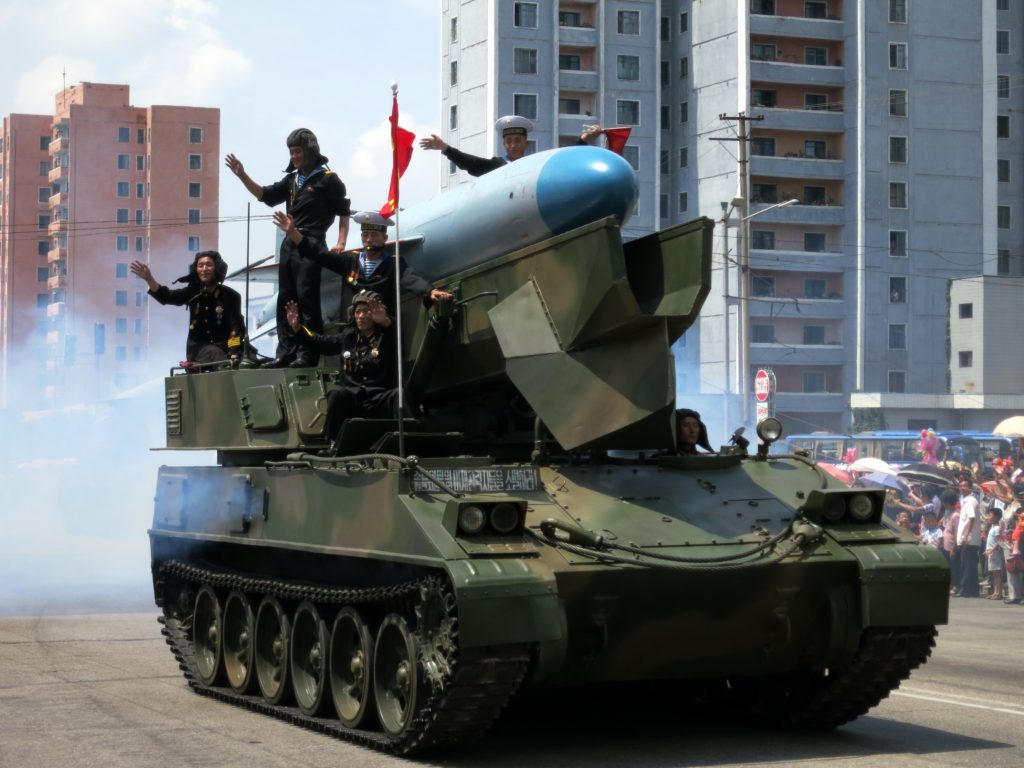The Peninsula
North Korea Tests Missile Over Japan Again: Stronger Action Needed

By Troy Stangarone
For the second time in a little more than two weeks, North Korea has launched a missile over Japan. The easy temptation in the aftermath of the latest UN sanctions would be to simply view the most recent test as North Korea expressing its displeasure at additional economic pressure. But because the regime has on multiple occasions stated that sanctions would not hurt North Korea, perhaps it’s best to view the test as what it is — a continuation of North Korea’s provocative steps to develop a wide array of nuclear weapons and delivery systems.
However, if past tests have been provocative, this one comes with a greater sense of dread than prior tests. In the past, Pyongyang has threatened to turn Seoul into a sea of fire or conduct a nuclear strike on Washington, DC. Of course, most North Korean threats have an air of bombast to them, and should not be viewed literally. However, with the North testing a hydrogen bomb and coupling the recent test over Japan with the threat that the country “should be sunken into the sea,” North Korea’s actions are beginning to hit too close to home.
If North Korea is beginning to be able to marry threats with capabilities, and to couple them with tests that demonstrate the havoc it could cause, the question becomes: what should the international community do about it? For one thing, at the UN, the advancement of North Korea’s nuclear program has historically received more attention than the development of the delivery systems needed to utilize those weapons. This needs to change.
There is one simple step that China could take to mitigate this growing threat. While China was reluctant to cut North Korea’s supply of oil in the new UN sanctions resolution, Beijing should seriously consider a temporary halt in oil shipments to send a clear signal to Pyongyang that it needs to back off from its constant string of tests. Cutting off oil supplies to North Korea will take time and force Pyongyang to explore alternatives such as coal liquefaction, but this is at least something that China can do to demonstrate its resolve.
In the long-term, however, there also needs to be a fundamental rethink of how the international community handles North Korea’s missile tests. As I previously noted:
Given the frequency of North Korea’s missile tests and the traditional slow pace of the UN Security Council’s response, it’s time to consider a different method. To do this, the United States should consider working with China and Russia to develop a new set of sanctions that would go into place incrementally for each additional test that North Korea conducts, while also leaving room to address other issues with the regime in Pyongyang. Without raising the level of sanctions after each North Korean missile test, there is little deterrent to stop the regime from continuing to move its program forward.”
While this is something that China and Russia would likely be reluctant to consider, what we do know is this – North Korea will conduct another missile test in the near future. The question is what the international community will do to try and prevent the regime in Pyongyang from perfecting its missile technology.
If China is reluctant to push North Korea further, it should also consider the costs of choosing not to utilize all of the leverage it may have with the regime in Pyongyang. In the past, China has said that it will not allow anyone to undermine its interests and start a war on the Korean peninsula. But the longer it holds back on fully using its leverage, the more China’s inaction risks ceding that possibility to North Korea by providing Kim Jong-un more opportunities to miscalculate.
Troy Stangarone is the Senior Director for Congressional Affairs at the Korea Economic Institute of America. The views expressed here are the author’s alone.
Photo from Stefan Krasowski’s photostream on flickr Creative Commons.
